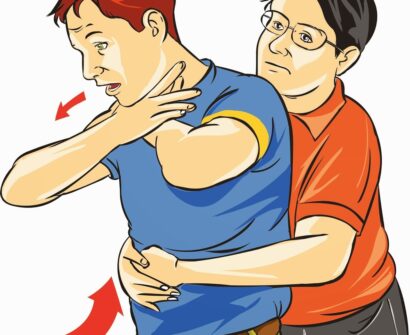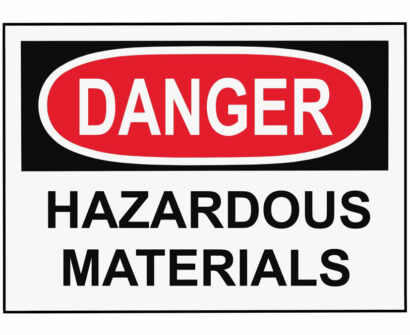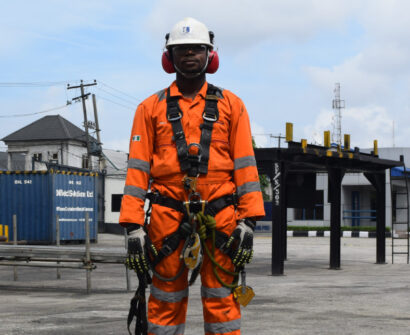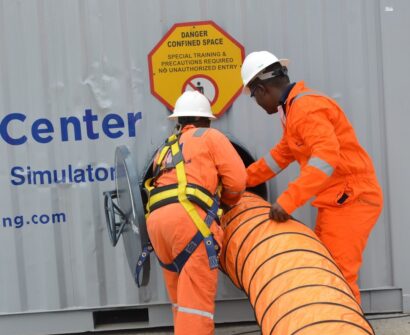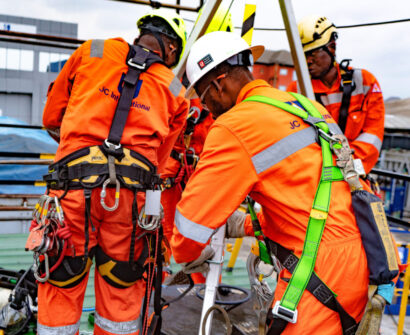Confined Space Safety: Why Proper Training is Critical for Hazardous Work Environments
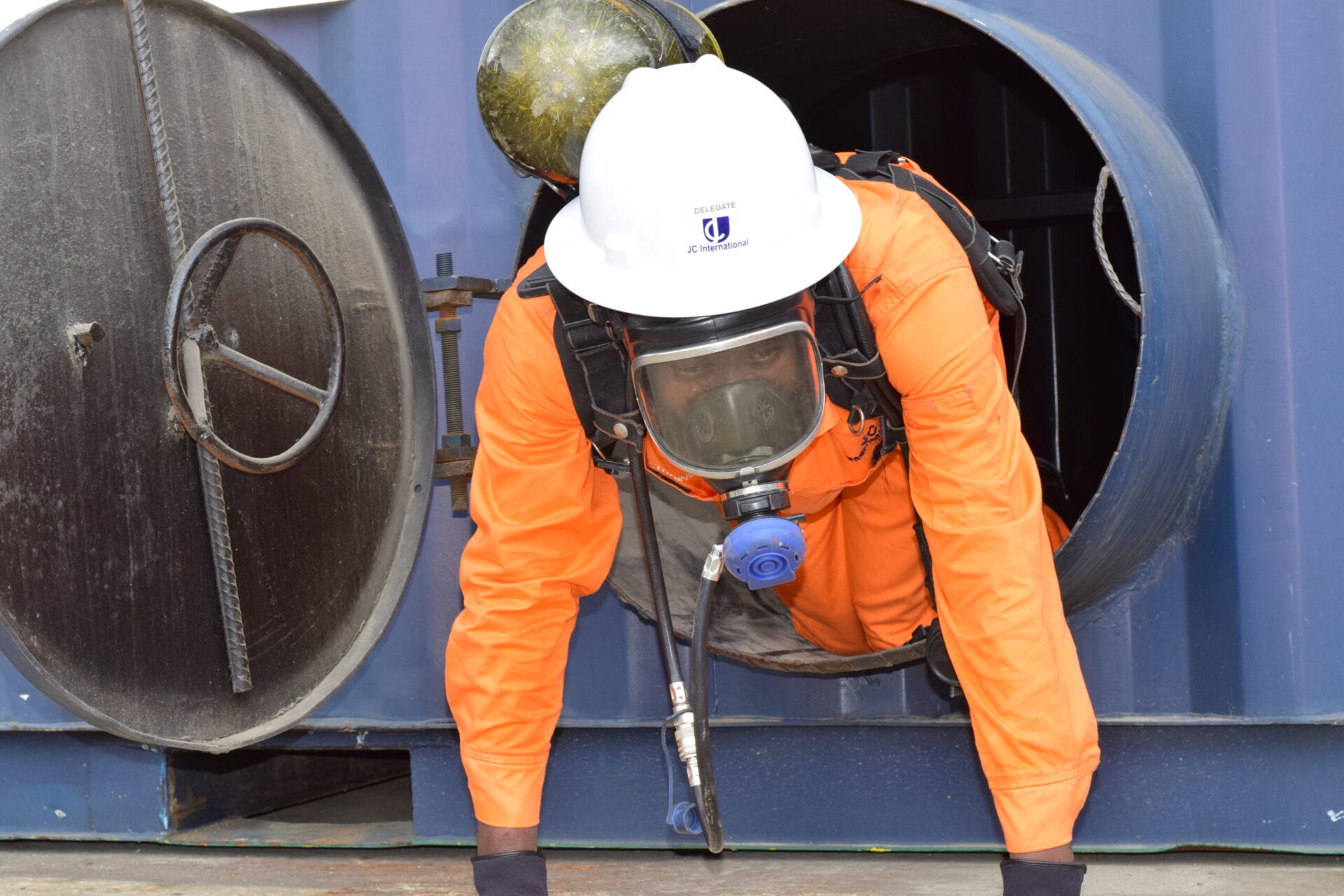
Confined spaces are among the most dangerous environments to work in, especially in industries like oil and gas, construction, and manufacturing. These spaces—such as storage tanks, pipelines, silos, and sewers—often have limited entry and exit points and pose serious risks, including oxygen deficiency, toxic gases, or the potential for explosions. To safeguard workers and ensure regulatory compliance, proper confined space training is not just recommended; it is absolutely critical.
What is a Confined Space?
A confined space is defined as any area that is large enough for a worker to enter and perform tasks, but is not designed for continuous occupancy. It also has limited means for entry and exit, which complicates emergency situations. While these spaces can be found across various industries, they are especially prevalent in oil refineries, manufacturing plants, and construction sites.
Common examples of confined spaces include:
Storage tanks
Pipelines and ducts
Underground vaults
Silos and hoppers
Tunnels and sewers
The Risks of Working in Confined Spaces
Confined spaces pose a variety of hazards that can quickly turn fatal without the proper precautions. These hazards include:
Oxygen Deficiency: Limited air circulation can result in low oxygen levels, making it difficult or even impossible to breathe.
Toxic Gases: Gases like carbon monoxide, methane, and hydrogen sulfide can accumulate in confined spaces, creating a lethal environment for workers.
Fire and Explosion: The presence of flammable gases or materials increases the risk of fire and explosion, especially when combined with poor ventilation.
Engulfment: Workers can be trapped or engulfed by materials such as sand, grain, or liquids, which can lead to suffocation.
Restricted Movement: The limited space can impede movement, making it harder for workers to escape or be rescued in case of an emergency.
Why Proper Training is Essential
Given these risks, confined space training is crucial for the safety of workers. Proper training equips workers with the knowledge and skills they need to:
Identify Confined Spaces: Workers must be trained to recognize confined spaces and understand the specific hazards they pose.
Perform Risk Assessments: Before entering a confined space, workers need to conduct thorough risk assessments to identify potential dangers such as hazardous gases or structural issues.
Use Proper Safety Equipment: Workers should be familiar with the use of safety equipment like gas detectors, personal protective equipment (PPE), and harnesses, as well as rescue tools that may be needed in emergencies.
Emergency Preparedness: Training ensures that workers know how to respond in case of an emergency. This includes having an emergency rescue plan, knowing the procedures for safe evacuation, and understanding how to use communication devices effectively.
Follow Regulations and Standards: Confined space training helps workers stay compliant with safety regulations. In Nigeria, for instance, both the Nigerian Department of Petroleum Resources (DPR) and international organizations such as OSHA have strict regulations for confined space entry, and training helps workers adhere to these guidelines.
The Importance of a Confined Space Rescue Team
Despite all the preventive measures, accidents in confined spaces can still occur. This is where a confined space rescue team becomes indispensable. Rescue teams are specifically trained to extract workers from confined spaces in emergencies. JC International, for example, has an IRATA-certified rope access rescue team equipped to handle both height and confined space rescues.
A well-trained rescue team can mean the difference between life and death in critical situations. They are trained to act quickly, efficiently, and safely, ensuring that injured or trapped workers are brought to safety as soon as possible.
How JC International Can Help
At JC International, we understand the importance of confined space safety and provide comprehensive confined space training to ensure your workforce is well-prepared. Our training programs cover everything from risk assessment and hazard identification to emergency rescue procedures, all while ensuring compliance with both local and international regulations.
Why Choose JC International for Confined Space Training?
Expert Instructors: Our trainers are industry experts with hands-on experience in confined space safety and rescue operations.
Customized Training Programs: We tailor our training to fit the specific needs of your industry and work environment.
State-of-the-Art Equipment: Our training programs include practical, hands-on sessions using the latest confined space safety equipment and rescue technologies.
Real-Life Simulations: We conduct real-life confined space simulations to ensure that your team is well-prepared for any scenario.
Conclusion
Confined space safety is not something to take lightly. Proper training is the cornerstone of ensuring that workers understand the risks and are equipped with the tools and knowledge they need to perform their jobs safely. JC International is committed to helping businesses in Nigeria meet these safety challenges head-on by offering comprehensive confined space training and expert rescue services.
To learn more about how we can assist with your confined space training and safety needs, contact JC International today.
Confined spaces are among the most dangerous environments to work in, especially in industries like oil and gas, construction, and manufacturing. These spaces—such as storage tanks, pipelines, silos, and sewers—often have limited entry and exit points and pose serious risks, including oxygen deficiency, toxic gases, or the potential for explosions. To safeguard workers and ensure regulatory compliance, proper confined space training is not just recommended; it is absolutely critical.
What is a Confined Space?
A confined space is defined as any area that is large enough for a worker to enter and perform tasks, but is not designed for continuous occupancy. It also has limited means for entry and exit, which complicates emergency situations. While these spaces can be found across various industries, they are especially prevalent in oil refineries, manufacturing plants, and construction sites.
Common examples of confined spaces include:
Storage tanks
Pipelines and ducts
Underground vaults
Silos and hoppers
Tunnels and sewers
The Risks of Working in Confined Spaces
Confined spaces pose a variety of hazards that can quickly turn fatal without the proper precautions. These hazards include:
Oxygen Deficiency: Limited air circulation can result in low oxygen levels, making it difficult or even impossible to breathe.
Toxic Gases: Gases like carbon monoxide, methane, and hydrogen sulfide can accumulate in confined spaces, creating a lethal environment for workers.
Fire and Explosion: The presence of flammable gases or materials increases the risk of fire and explosion, especially when combined with poor ventilation.
Engulfment: Workers can be trapped or engulfed by materials such as sand, grain, or liquids, which can lead to suffocation.
Restricted Movement: The limited space can impede movement, making it harder for workers to escape or be rescued in case of an emergency.
Why Proper Training is Essential
Given these risks, confined space training is crucial for the safety of workers. Proper training equips workers with the knowledge and skills they need to:
Identify Confined Spaces: Workers must be trained to recognize confined spaces and understand the specific hazards they pose.
Perform Risk Assessments: Before entering a confined space, workers need to conduct thorough risk assessments to identify potential dangers such as hazardous gases or structural issues.
Use Proper Safety Equipment: Workers should be familiar with the use of safety equipment like gas detectors, personal protective equipment (PPE), and harnesses, as well as rescue tools that may be needed in emergencies.
Emergency Preparedness: Training ensures that workers know how to respond in case of an emergency. This includes having an emergency rescue plan, knowing the procedures for safe evacuation, and understanding how to use communication devices effectively.
Follow Regulations and Standards: Confined space training helps workers stay compliant with safety regulations. In Nigeria, for instance, both the Nigerian Department of Petroleum Resources (DPR) and international organizations such as OSHA have strict regulations for confined space entry, and training helps workers adhere to these guidelines.
The Importance of a Confined Space Rescue Team
Despite all the preventive measures, accidents in confined spaces can still occur. This is where a confined space rescue team becomes indispensable. Rescue teams are specifically trained to extract workers from confined spaces in emergencies. JC International, for example, has an IRATA-certified rope access rescue team equipped to handle both height and confined space rescues.
A well-trained rescue team can mean the difference between life and death in critical situations. They are trained to act quickly, efficiently, and safely, ensuring that injured or trapped workers are brought to safety as soon as possible.
How JC International Can Help
At JC International, we understand the importance of confined space safety and provide comprehensive confined space training to ensure your workforce is well-prepared. Our training programs cover everything from risk assessment and hazard identification to emergency rescue procedures, all while ensuring compliance with both local and international regulations.
Why Choose JC International for Confined Space Training?
Expert Instructors: Our trainers are industry experts with hands-on experience in confined space safety and rescue operations.
Customized Training Programs: We tailor our training to fit the specific needs of your industry and work environment.
State-of-the-Art Equipment: Our training programs include practical, hands-on sessions using the latest confined space safety equipment and rescue technologies.
Real-Life Simulations: We conduct real-life confined space simulations to ensure that your team is well-prepared for any scenario.
Conclusion
Confined space safety is not something to take lightly. Proper training is the cornerstone of ensuring that workers understand the risks and are equipped with the tools and knowledge they need to perform their jobs safely. JC International is committed to helping businesses in Nigeria meet these safety challenges head-on by offering comprehensive confined space training and expert rescue services.
To learn more about how we can assist with your confined space training and safety needs, contact JC International today.

